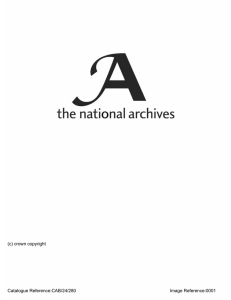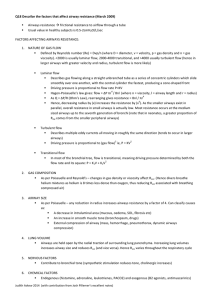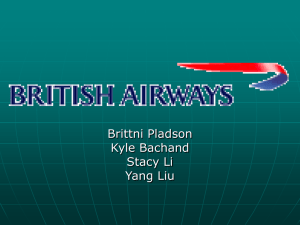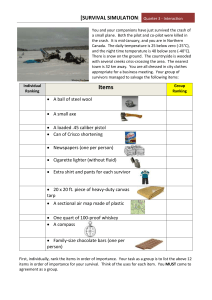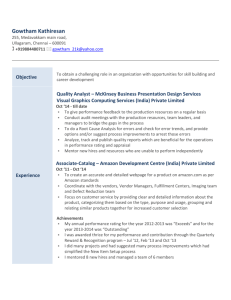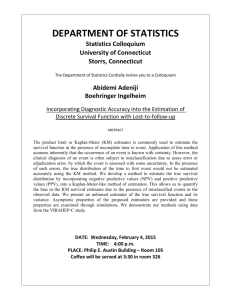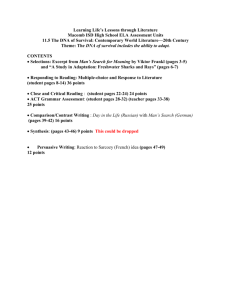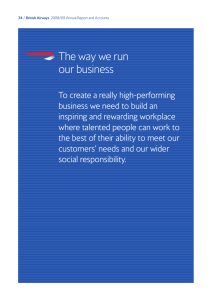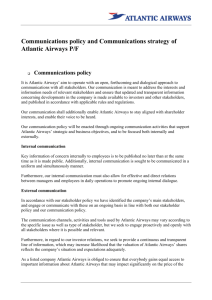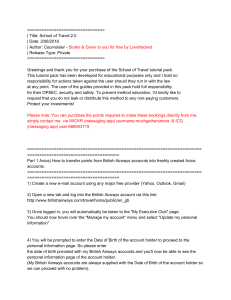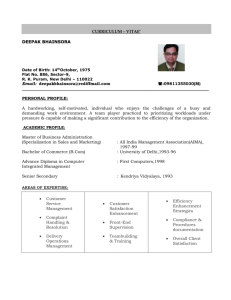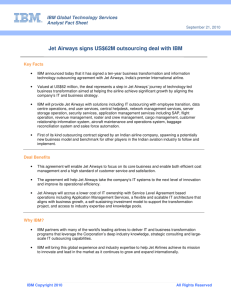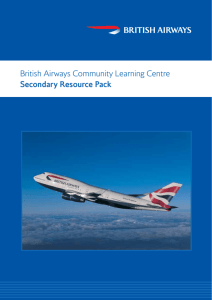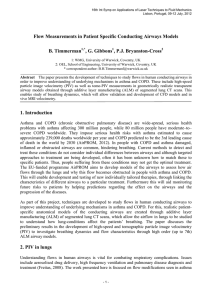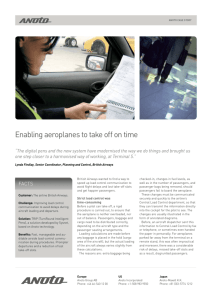Organization Culture Change Advantage and Disadvantage.doc
advertisement
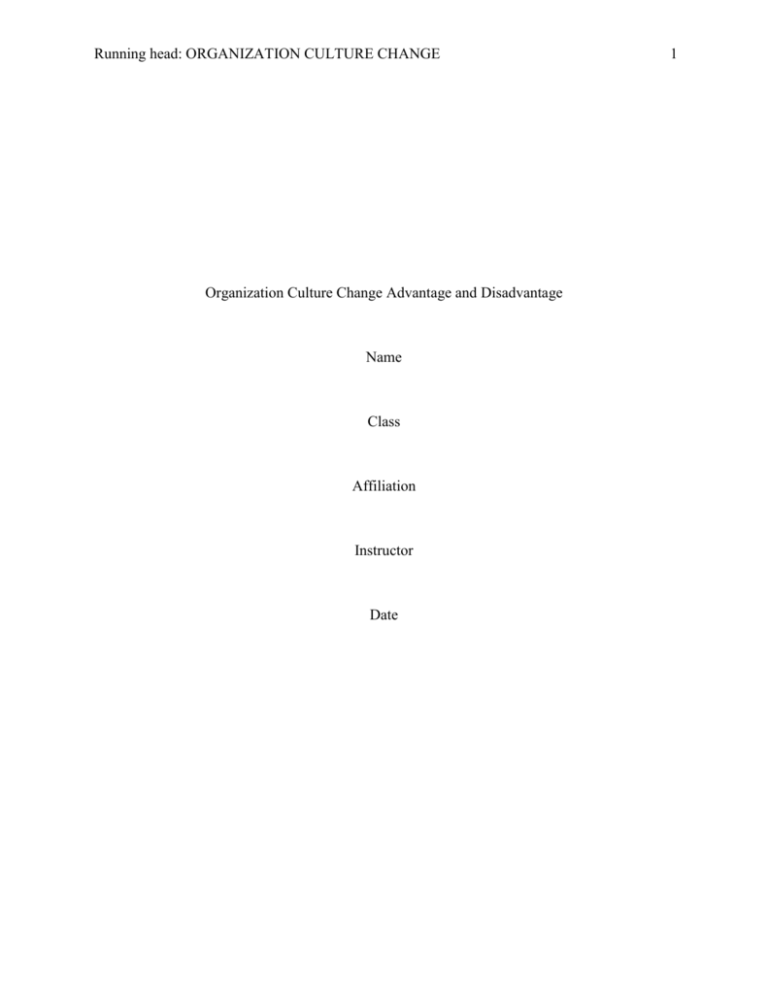
Running head: ORGANIZATION CULTURE CHANGE Organization Culture Change Advantage and Disadvantage Name Class Affiliation Instructor Date 1 ORGANIZATION CULTURE CHANGE 2 Introduction According to Ravasi & Schultz (2006), organization culture is an aggregate of all the actions of people in a particular organization, which include their working language, visions, values, symbols, systems, habits and norms. To improve performance in an organization, it is essential to ensure a culture change, to change the way employees perform their responsibilities. Change in an organization culture has both the advantages and disadvantages that come with it. This paper is an analysis of the 2008, 2009 culture change in British Airways culture change. British Airways is one of the major airlines with most routes worldwide. During the year 2007, the fall of the USA mortgage market led to the beginning of the 2008 economic crisis, or recession, which had global effects (Aslund, 2010). During this period, British Airways CEO, Mr. Willie Walsh, focused on changing the organization culture, to ensure that the company remained profitable. He introduced longer working hours, unpaid leave, cancelled meals and salary reductions to cut the cost of running the company. Advantage of culture change Culture change in an organization is essential, when it focuses on achieving better results and higher productivity of the company (Denison et al., 2004). The change of organization culture in British Airways assured the company survival throughout the 2008 economic recession, when other companies were collapsing. According to Goodman, Zammuto & Gifford (2001), the change of an organization culture for better performance assists a company is development of a competitive advantage over other organizations operating in the same industry. Disadvantage of culture change The change in the culture might disorient the employees as it moves them from their comfort zones. The change implemented at British Airways by the CEO, Mr. Willie Walsh, was ORGANIZATION CULTURE CHANGE 3 met with resistance from the cabin crew and resulted in riots. Therefore, if not managed, change in organization culture and disrupt the smooth running of organization business (Goodman, Zammuto & Gifford, 2001). Effect of organization change in an organization I worked for When working in a department store, the management and selling of stock was done manually, but later the management introduced a checkout system, which allowed us to work out the totals and customer change automatically. This made work easier for the cashiers, and digitalized the stock taking process as the management could now monitor the movement of stocks electronically. This changed the organization culture as the cashiers no longer had to use the manual calculators to workout total purchase prices for the customers and management lo longer needed to go through the shelves assessing the level of remaining stocks. Conclusion The culture of an organization bids the employees together as it determines how different roles or functions of an organization are carried out. However, in some instances, it becomes necessary for the culture to change to ensure the survival of an organization. These changes in organization culture can have positive and negative effects. The change can ensure the survival of an organization during the economic hard times, but can also be faced with resistance, from individuals that are not ready to accept changes. However, when managed in the right manner organizational culture change can provide the desired positive effects and ensure a company’s survival. ORGANIZATION CULTURE CHANGE 4 Reference Aslund, A. (2010). The Last Shall be the First: The East European Financial Crisis, 2008-10. Peterson Institute. Denison, Daniel R., Haaland, S. and Goelzer, P. (2004). Corporate Culture and Organizational Effectiveness: Is Asia Different from the Rest of the World. Organizational Dynamics, pp. 98–1 09 Goodman, E.A., Zammuto, R.F., & Gifford, B.D. (2001). The competing values framework: Understanding the impact of organizational culture on the quality of work life. Organizational Development Journal, 19: 58-68. Ravasi, D., Schultz, M. (2006), "Responding to organizational identity threats: exploring the role of organizational culture", Academy of Management Journal, Vol.49, No.3, pp. 433–458.

